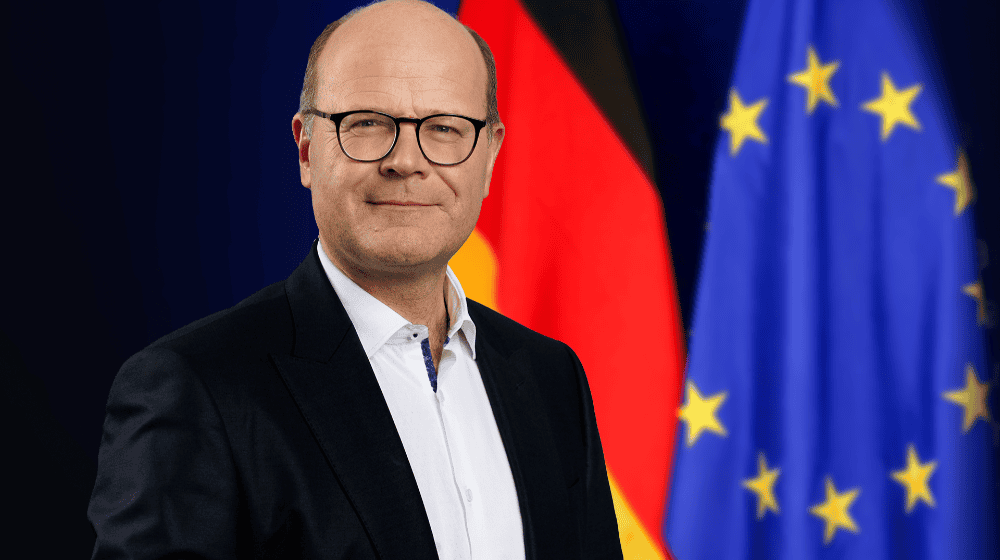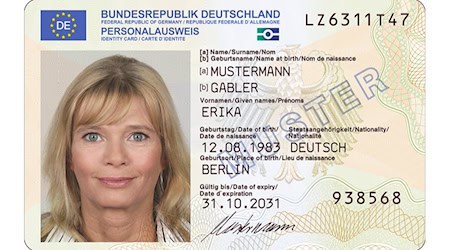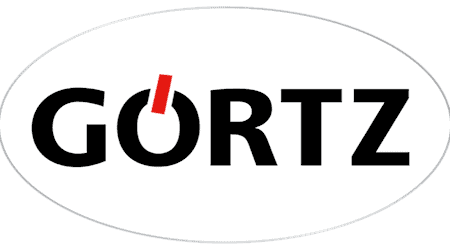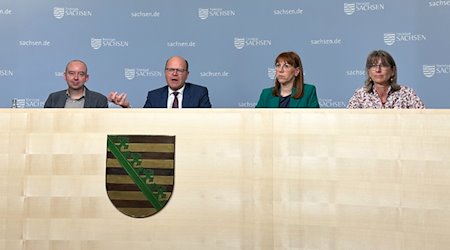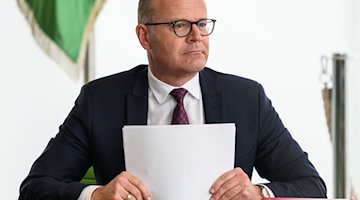Oliver Schenk, lead candidate of the CDU Saxony for the European elections, is facing major challenges and opportunities that affect the heart of Europe and Saxony in particular. In a comprehensive interview, he comments on a wide range of topics that affect both the local and European level. From the future of Saxony as a research location, to integration and social cohesion in Germany, to his personal impressions and goals as part of his political career.
Schenk talks about the importance of Saxony at the heart of Europe and the region's role in the geopolitical landscape, particularly in relation to current conflicts such as in Ukraine. He discusses the important economic and social impetus provided by European integration and emphasizes the need for strong cooperation within the EU in order to effectively tackle challenges such as illegal migration and securing Saxony's economic future.
Schenk also comments on the idea of a German Leitkultur, which was recently included in the CDU's manifesto. He defines what "Leitkultur" means to him and how it should shape coexistence in Germany. His answers offer a deep insight into his views and the political priorities he is pursuing for Saxony and Europe.
Through his many years of experience in the Saxon State Chancellery and his positions on current issues, it becomes clear how committed Schenk is to strengthening the link between local needs and European goals. Read on to find out how Oliver Schenk plans to ensure Saxony plays a decisive role in Europe and what personal motivations drive him.
European integration and local roots
DieSachsen.de: Mr. Schenk, you are standing as the lead candidate for the CDU Saxony in the European elections. How would you like to represent Saxony's interests at European level and what specific Saxon concerns do you see as being paramount?
Oliver Schenk: Saxony benefits from a strong Europe. The Free State lies at the heart of the EU. This brings with it many opportunities, but also challenges. I am firmly convinced that Saxony and Germany can only assert themselves if Europe stands together and positions itself jointly on geopolitical issues and questions of global trade. Many companies in the Free State have their main sales market within the European Union. This is how prosperity is created here, from which people benefit. I would also like to advocate that we cooperate more closely with our Polish and Czech neighbors. Together with them, we can advance important issues for the future. I am thinking of the microelectronics industry, for example. Silicon Saxony is already the heart of the European chip industry - specifically supported by the EU. The EU member states also need to work closely together to curb illegal migration. People in Saxony's border regions feel this every day. It is also very important to me that Saxons perceive Europe in their everyday lives. Above all in their immediate living environment, where municipalities benefit from funding programs. The EU is crucial to ensuring that the Free State can continue to develop as a liveable and lovable home in all regions. My goal is to give Saxony a strong voice in the European Parliament and thus contribute to our state benefiting even more from the EU in the future.
Experiences and impressions from Ukraine
DieSachsen.de: You recently visited Kharkiv and signed a partnership agreement. What personal impressions did you take away from this visit and how do you assess Saxony's role in international cooperation, especially in times of crisis? How are Russia's current attacks in the region affecting the planned partnership?
Oliver Schenk: We are sending out a clear signal with our new partnership: The Russian-led war of aggression against Ukraine will not divide us. It will bring Ukraine and Europe even closer together. Such partnerships are an important basis for a common European future. City and regional partnerships bring people together. They make a decisive contribution, for example by providing advice and support on Ukraine's path to prospective EU membership. The cooperation with Kharkiv builds on existing links, for example in science, and should become an important element in the reconstruction of the region.
Research and innovation in Saxony
DieSachsen.de: As an advocate of Saxony as a research location, what steps do you think are necessary to establish Saxony as a leading innovation location in Europe? Are there any special projects or initiatives that you would like to promote?
Oliver Schenk: Research, development and production must be closely interlinked. On the one hand, we must therefore succeed in establishing research facilities that tie in with existing industries and make them even more innovative. On the other hand, research centers and institutes can be the nucleus for industries that then develop in new regions. The expansion of microelectronics production in Saxony will be an important driving force for research. The EU, federal and state governments must work together to turn the lignite regions into innovative regions of the future. An important step in this direction is the establishment of large-scale research centers. This has already been successfully achieved with the German Center for Astrophysics in Lusatia in Saxony and the Center for the Transformation of Chemistry in the Central German mining area. We must continue along this path and ensure that there is once again more innovation made in Germany.
Economic policy and business development
DieSachsen.de: To what extent are you planning to support small and medium-sized enterprises in Saxony? What measures do you consider essential in order to create a business-friendly climate and what does this mean in concrete terms for the local economy?
Oliver Schenk: Small and medium-sized companies are the heart of the Saxon and German economy. They face many challenges that often hit them harder than large corporations. A multi-billion corporation can quickly say goodbye to a location as soon as the framework conditions change for it. Our SMEs cannot do this. That is why the EU also has a responsibility to strengthen these companies. I would like us to trust entrepreneurs more again and prescribe less. At EU level, regulations that impose a bureaucratic burden must therefore be reduced. EU Commission President Ursula von der Leyen has promised to work towards this. It is also important that climate protection does not come at the expense of the competitiveness of our companies.
Education and federalism
DieSachsen.de: You are in favor of federalist approaches in education policy. How do you envisage the future of education policy in Saxony, and what do you think an effective balance between nationwide standards and regional autonomy could look like?
Oliver Schenk: All comparisons show that Saxony's pupils are among the best in Germany. We can all be proud of this, but we should not rest on our laurels. I think the good school system in Saxony also has something to do with the fact that education is a state matter. It is clear that we have set the right priorities in the Free State. We should continue to ensure that there is better comparability of qualifications, for example. However, performance standards must not be lowered to achieve this. The federal government should get more involved in infrastructure: Digitization of schools and school building construction. This would provide the federal states with important support.
Artificial intelligence and ethics
DieSachsen.de: With regard to your focus on AI, how do you see the ethical challenges in dealing with artificial intelligence and what measures should be taken to ensure the responsible development and use of AI?
Oliver Schenk: As with so many things in the fields of AI and digitalization, we should first look at the opportunities and not the problems. We must succeed in ensuring that AI is not only used in cutting-edge research or the high-tech industry, but also in the skilled trades, for example. The fact is: AI can revolutionize medicine, will influence our economic order and change our education. Our hope should be that AI will move us forward as humanity. The EU has already laid down the rules and ethical standards with the AI Act. Two aspects of the new legislation are particularly important to me: AI must always be controlled by humans in the final instance and the legislation must not be a brake on future developments. We need to have a discussion about how the balance between the opportunities and challenges for us will be shaped.
Personal motivation and goals
DieSachsen.de: What motivated you to go into politics and now run for the European Parliament? What personal goals and visions would you like to realize at European level?
Oliver Schenk: I have been Head of the State Chancellery and Minister of State in Michael Kretschmer's cabinet for more than six years. In these six years, I have seen time and again how important the European level is for us in the Free State of Saxony. On the one hand, of course, I am referring to the opportunities that the European funds open up for us: Around €20 billion in European funds have been invested in Saxony in agriculture, healthcare or public infrastructure. These are important investments! But I also mean everything beyond that: the free movement of workers, exchanges with our neighbors and coordination in the face of challenges such as the recent coronavirus pandemic. All of this is made easier by the European framework. I would like to help shape the European component and be a strong voice for Saxony in Brussels.
Challenges of immigration policy
DieSachsen.de: Saxony faces the challenge of promoting skilled immigration while at the same time controlling irregular immigration into the social systems. Why is it so difficult to find a balance between these two requirements and what measures do you think are necessary to achieve this balance?
Oliver Schenk: We should always make a clear distinction between targeted immigration of skilled workers and irregular migration. The EU and Germany must do even more to attract skilled immigration. Saxony is also using various means to recruit nursing staff and other workers from outside the EU. We need to clearly define what we expect from immigrants and then ensure that they integrate quickly and well. Anyone who agitates against foreigners and wants to seal off our country is jeopardizing a good future and prosperity for our country.
European goals and strategies
DieSachsen.de: As the CDU's lead candidate for the European elections, what specific goals are you pursuing at European level in order to shape immigration policy effectively? How do you plan to incorporate Saxony's interests into a common European solution to the refugee problem?
Oliver Schenk: The fight against illegal migration is a task that EU member states and their partners must face together. Anything else cannot be successful. What is needed is better protection of the EU's external borders, the implementation of asylum procedures in safe third countries and better support for the accommodation of refugees near their countries of origin. There also needs to be a fairer distribution of asylum seekers within the EU. Work on this has been going on for too long with little success. We finally need tangible results.
Definition and meaning of Leitkultur
DieSachsen.de: The term "Leitkultur" was recently included in the CDU's basic program. What do you personally understand by "Leitkultur" and how do you think it should shape coexistence in Germany?
Oliver Schenk: For me, Leitkultur means something unifying that holds our society together. This includes, for example, respect for the dignity of every individual and the resulting fundamental and human rights, our constitutional state, democracy, respect and tolerance. For me, this also includes an awareness of home and belonging, as well as knowledge of the German language and history and recognition of Israel's right to exist. Recognizing our guiding culture is not only aimed at migrants, but also applies to everyone else in our country.
Goals and effects of a guiding culture
DieSachsen.de: What specific goals are you pursuing by anchoring a guiding culture in the CDU's basic program, and what effects do you expect this to have on social integration and social cohesion in Germany?
Oliver Schenk: A common guiding culture defines the rules of our coexistence, just like the Basic Law. Both enshrine values that we must defend and that create cohesion in our society. The guiding culture and the Basic Law are what we agree on despite all our differences. They are therefore the basis for good coexistence in our country. Furthermore, these values, such as equal rights and respect for human dignity, provide orientation. We should represent them confidently and stand up for them every day.
DieSachsen.de: Thank you very much for your time and good luck in the European elections.
---
This interview was conducted in writing by Thomas Wolf on May 21, 2024.
Transparency note: Thomas Wolf is also a member of the CDU.

